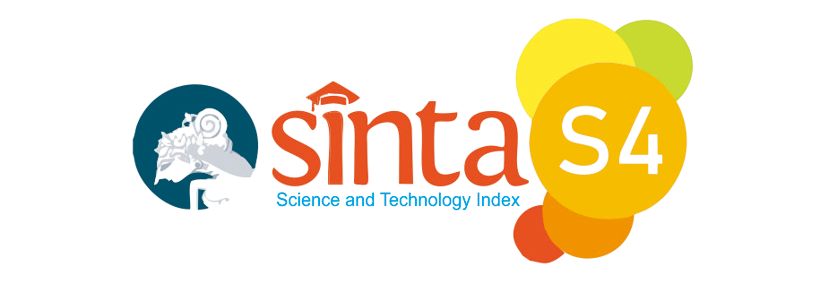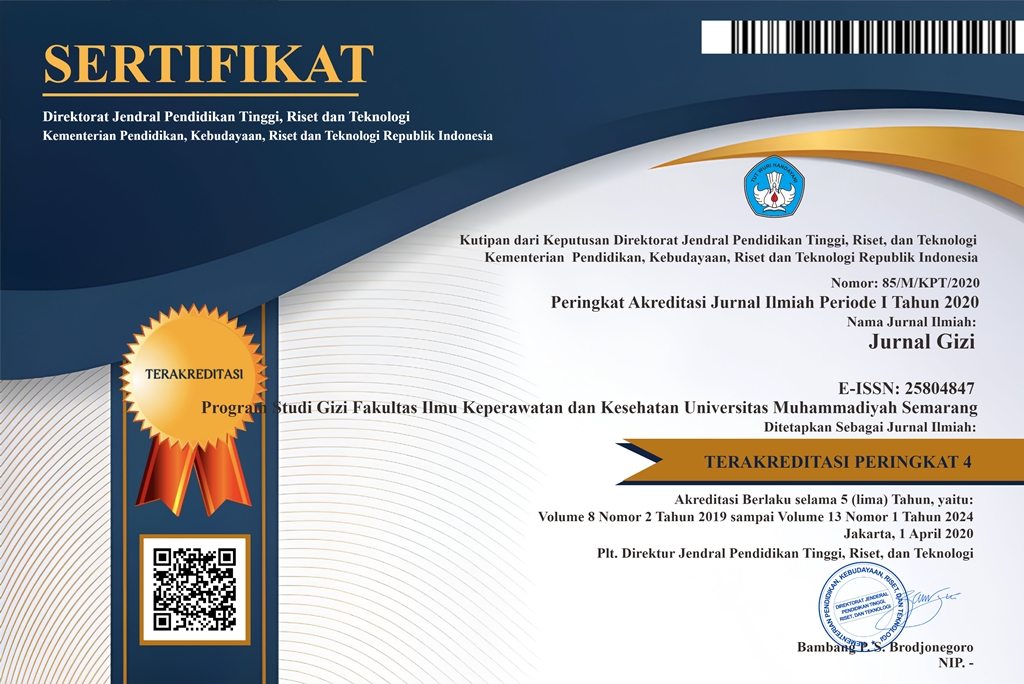Perbedaan Pola Konsumsi Bahan Makanan Sumber Protein di Daerah Pantai, Dataran Rendah dan Dataran Tinggi
(1)
(2)
(3)
(*) Corresponding Author
Abstract
Consumption patterns consisting of the variation, the number and frequency of food consumed. The difference consumption patterns between community groups often coused the difference of nutrition status and nutrition problem, that it need the difference strategy and policy to sattle the problem. To now the coused of the difference consumption petterns is to be important. The difference consumption pattern was caused by various factors , one of which is the potential of the region residence. Research aimed to knows the difference pattern consumption of food a needsource of protein family in coastal areas, low-lying and uplands.
Research analytic with the design split of latitude. The sample of the 30 families of each type the area taken up by means of random sampling. Anova test used to knowing the difference consumption pattern of groceries a source of protein family in the coastal regions , lowland and highland.
The researh shows that the average number of consumption of food a source of protein, a coastal area is 117,56 /grams/capita per day (animal 59,31gram and vegetable 58,24 grams), low-lying is 154,25/grams/capita/day (animal 51,49 gram and vegetable 103,33 grams), the highlands is 154,40/grams/capita per day (animal 77,50 gram and vegetable 75,56 grams). The average level of diversity food a source of protein coastal areas is 14, 8 of kind, low-lying is 12.1 of kind, and the highlands is 15.6 of kind. The average frequency food a source of protein monthly coastal areas is 32,17 times vegetable and 47,7 times animal, low-lying is 21,17 times vegetable and 44,13 times animal, the highlands is 35,43 times vegetable and 40,2 times animal.
Test anova show there is the difference in the diversity ( p = 0,020 ), frequency ( p = 0,003 ) and the number of ( p = 0,008 ) material food sources of protein consume by family between in coastal areas, low-lying and uplands. There is a difference in consumption patterns groceries a source of protein family in the coastal regions , lowland and highland .
Keywords: The consumption patterns, The food source of protein, The region type
Research analytic with the design split of latitude. The sample of the 30 families of each type the area taken up by means of random sampling. Anova test used to knowing the difference consumption pattern of groceries a source of protein family in the coastal regions , lowland and highland.
The researh shows that the average number of consumption of food a source of protein, a coastal area is 117,56 /grams/capita per day (animal 59,31gram and vegetable 58,24 grams), low-lying is 154,25/grams/capita/day (animal 51,49 gram and vegetable 103,33 grams), the highlands is 154,40/grams/capita per day (animal 77,50 gram and vegetable 75,56 grams). The average level of diversity food a source of protein coastal areas is 14, 8 of kind, low-lying is 12.1 of kind, and the highlands is 15.6 of kind. The average frequency food a source of protein monthly coastal areas is 32,17 times vegetable and 47,7 times animal, low-lying is 21,17 times vegetable and 44,13 times animal, the highlands is 35,43 times vegetable and 40,2 times animal.
Test anova show there is the difference in the diversity ( p = 0,020 ), frequency ( p = 0,003 ) and the number of ( p = 0,008 ) material food sources of protein consume by family between in coastal areas, low-lying and uplands. There is a difference in consumption patterns groceries a source of protein family in the coastal regions , lowland and highland .
Keywords: The consumption patterns, The food source of protein, The region type
Full Text:
PDFArticle Metrics
Abstract view : 5651 timesPDF - 1888 times
DOI: https://doi.org/10.26714/jg.6.1.2017.%25p
Refbacks
- There are currently no refbacks.
Diterbitkan oleh: Program Studi Gizi (D3 dan S1)
Fakultas Ilmu Keperawatan dan Kesehatan
Universitas Muhammadiyah Semarang
Sekretariat: Jl. Kedungmundu Raya No. 18 Semarang
Contact Person : Hapsari Sulistya Kusuma, S.Gz, M.Si (+62 85 6 41 536 553)

This work is licensed under a Creative Commons Attribution 4.0 International License.









.png)
.png)